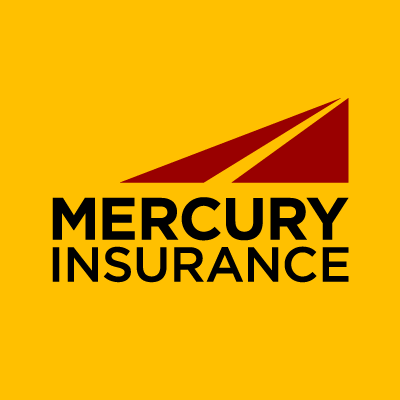Buying a car can be both an exciting and overwhelming experience. With so many vehicles available on the market, from reliable used cars to modern electric vehicles (EVs), it can take time to pick a car that suits your lifestyle and budget. When heading to the dealership and deciding on a car, it’s important to make sure you have the proper documentation and information to present to the seller. Let’s dive into all the necessary details to ensure your car-buying process is as smooth as possible.
What You Need to Buy a Car
When purchasing a vehicle from a dealership, whether it’s new or used, there are specific documents and other information you must have on hand.
Personal Identification and Information
Do you need a driver’s license to buy a car? Yes. It proves to the dealership that you’re legally allowed to operate a vehicle. Additionally, it helps verify your identity and residence. To avoid any complications in the car-buying process, ensure your license is valid and hasn’t expired before you arrive at the dealership.
In addition to your driver’s license, you may also need to provide other forms of identification or information. For instance, some dealerships may require a second form of ID, such as a passport or social security card, to further verify your identity and protect themselves against fraud.
What Documents Do You Need to Buy a Car?
When buying a car, it’s essential to come prepared with the necessary documents, as this speeds up the process and aids in securing the best financing options available. Here’s a breakdown of the documents you’ll need.
Financial Documentation
Financial documents give the dealership a better understanding of your monetary health and can help them tailor a financing plan that suits your needs. Here are some documents you may need to provide:
- Proof of income: Dealerships need to know that you have a steady income and can afford the monthly payments for the car you’re interested in. You can use recent pay stubs, bank statements, or tax returns to help prove your source of income. If you’re self-employed, you may need to provide additional documentation, such as profit and loss statements.
- Credit information: Your credit score and history play a significant role in the car-buying process, as dealerships use this information to determine your interest rate and loan terms. You don’t necessarily need to bring a copy of your credit report to the dealership since they can usually access this information with your permission. However, reviewing your credit report beforehand is a good idea to ensure no errors could impact your financing.
- Pre-approval document: Bring the approval document if you’ve been pre-approved for a car loan. This document shows the dealership that a lender has already agreed to finance your purchase up to a certain amount. Having your pre-approval document can also give you more negotiating power. For example, if the dealership offers in-house financing, they might offer a lower interest rate to persuade you to finance through them instead of using your pre-approved loan.
Insurance Documentation
Do you need car insurance to buy a car? Most dealerships require proof of auto insurance before purchasing a new or used vehicle. Here’s a breakdown of what you need to know about insurance when buying a car:
- Current insurance information: Before heading to the dealership, ensure your current insurance information is readily available. This includes your policy number, insurance company contact details, and any relevant documents, such as proof of coverage.
- New car insurance: If you’re buying a brand-new vehicle, you must arrange for new car insurance. This differs from your current insurance policy, as it will specifically cover your new vehicle. Contact your insurance provider to discuss your new policy's options and auto insurance quotes.
When purchasing a car, it's important to understand the coverage requirements in your state. Various regions have different minimum coverage requirements, so make sure you meet the necessary criteria. Your insurance provider can guide you through this process and help you choose the right coverage for your new car.
Trade-In Documentation (If Applicable)
If you plan to trade in your old car when buying a new one, have all the necessary documentation ready to speed up the process and get the best possible trade-in value for your old vehicle. Here are some key points to consider:
- Vehicle title: The vehicle title is the most important document you need when trading in your car because it proves you’re the vehicle’s legal owner. Ensure the title is clean, meaning it’s free of liens. If you still owe money on your car, the dealership will need to pay off your loan to secure the title.
- Maintenance records: Keeping a detailed record of your car’s maintenance history can increase its trade-in value. These records show that you’ve taken good care of your vehicle, which can be a selling point to the dealership. Include receipts for regular maintenance like oil changes, tire rotations, and any other repairs or upgrades you’ve made.
Before heading to the dealership, consider getting an appraisal, which will give you an idea of your car’s worth and help you negotiate a fair trade-in value. You can use online tools or visit multiple dealerships for an accurate appraisal. Also, get your car professionally cleaned or do a thorough clean-up yourself before taking it to the dealership. Presenting a clean, well-maintained car can positively impact its trade-in value.
Payment Method
You have all your preliminary information ready, so now it’s time to start thinking about how you will pay for your new ride. Here are some key points to consider:
- Payment method: Come prepared with a clear idea of your preferred payment method. Whether you’re planning to pay in cash, use a credit card, or finance through a loan, weigh the pros and cons of each to find the one that best suits your financial situation. If you’re paying with a check or credit card, ensure you have enough funds. If you’re opting for financing, consider getting pre-approved for a loan to strengthen your bargaining position and expedite the purchase process.
- Down payment: A down payment is the initial upfront portion you pay when buying a car. The amount you put down can significantly affect your monthly payments and interest rate. Generally, the larger the down payment, the smaller your loan and monthly payments will be. Also, it’s usually recommended to put down at least 20% of the car’s price.
- Payment plan details: If you’re financing your car — either through the dealership or a financial institution — you’ll need to clearly understand your payment plan. This includes the loan term (how long you’ll pay for the car), interest rate, and monthly payment amount. Before signing any agreement, read and understand all the terms and conditions.
Conclusion
Purchasing a car can be an exciting experience, but it comes with a lot of preparation. Keep these tips in mind when heading to the dealership, and always double-check that you have the necessary documentation for your appointment. Doing so will help to make the process as seamless as possible, so you can leave happily with your new ride.
If you’re looking for full coverage car insurance for your new vehicle, consider Mercury, where we offer best-in-class coverage at an affordable rate.


